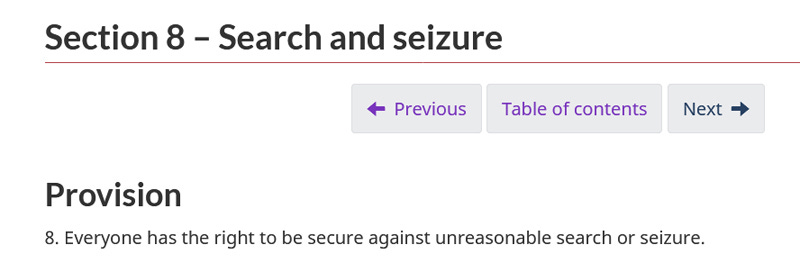Freedom Convoy Bank Account Freezing Was Illegal, Judge Rules
Protections against unreasonable search and seizure were violated.
Yesterday was a bright day for Canada. The Honourable Richard Mosley, a federal court judge, ruled that the freezing of protester bank accounts under the Emergencies Act was wrong.
His written decision is 126 pages long, followed by 64 pages of appendices. You can download and read the entire thing here.
This decision will take time to fully digest, especially for those of us who aren’t lawyers. For the moment, it’s heartening to observe that Justice Mosley rejected government arguments about the freezing of bank accounts.
Section 8 of Canada’s Charter of Rights and Freedoms protects the public from unreasonable search and seizure. In essence, this is about our right to privacy. The government argued that the freezing of these banks accounts wasn’t technically a seizure, but Justice Mosley disagreed.
In his words, if government action “results in the content of a bank account being unavailable to the owner of the said account…most members of the public” would view that as a seizure.
He then went further. Due to the fact that banking information is highly private, he said, “I am satisfied,” that the disclosure of banking information (by banks) “to the RCMP constituted a ‘seizure’ of that information by the government.” In other words, Justin Trudeau’s government engaged in two different kinds of unreasonable seizure.
Justice Mosley was told bank accounts were frozen even when the RCMP lacked reasonable grounds or reasonable suspicion of wrongdoing. The fact that no objective standard was applied - that mere belief was good enough to freeze someone’s bank account - was a clear violation of Section 8 of the Charter.
see also: The Emergencies Act Ruling






